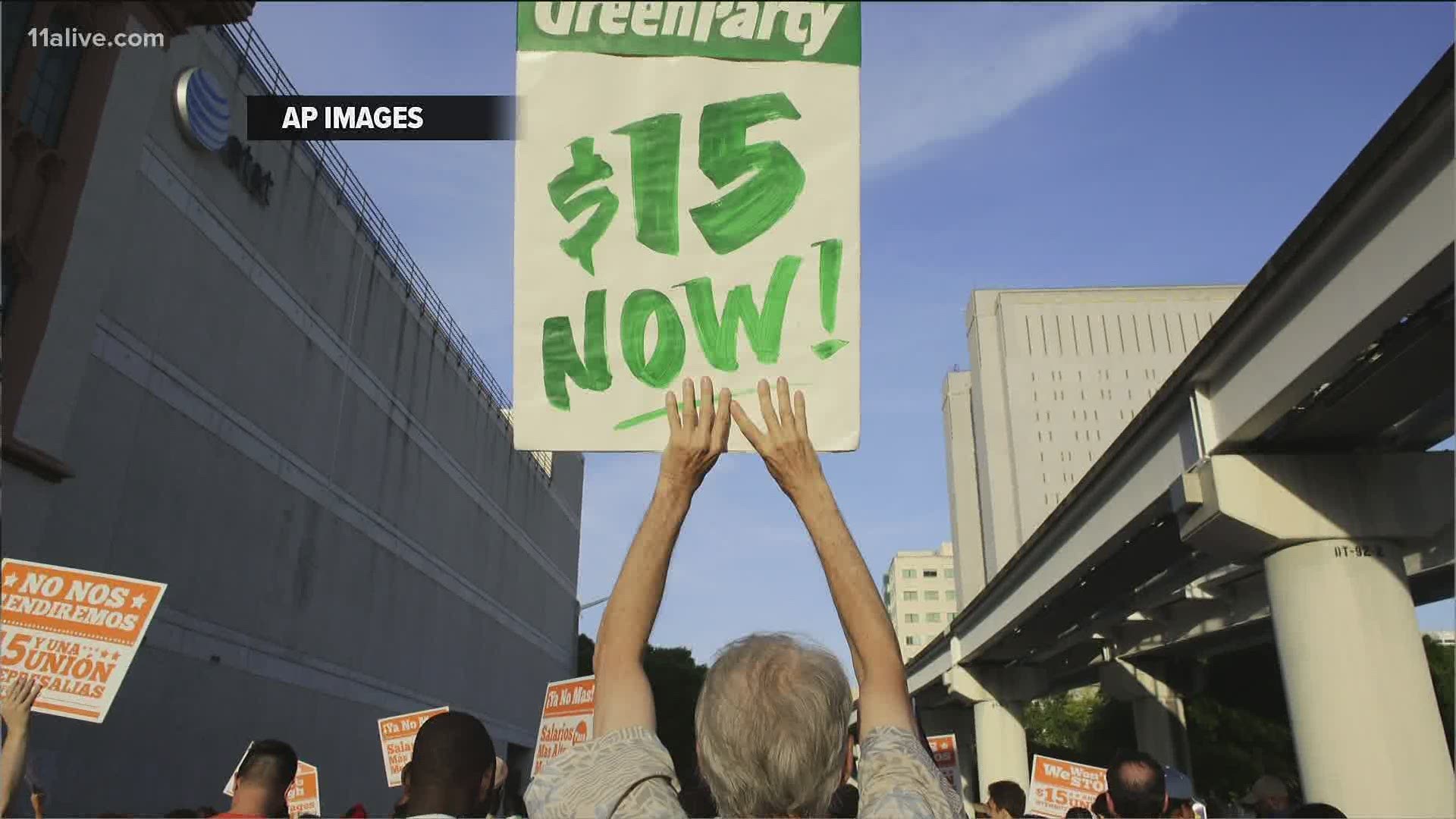ATLANTA — Congress will debate a proposal to raise the federal minimum wage to $15 an hour, opening the door for the first increase since 2009.
Democrats in both the House and Senate are behind legislation that would increase the minimum wage to $15 by 2025.
“Even before the COVID-19 pandemic, the $7.25 federal minimum wage was economically and morally indefensible,” says Rep. Bobby Scott of Virginia. “Now, the pandemic is highlighting the gross imbalance.”
Even though the cost of living has gone up since 2009, the minimum wage has not.
Let’s explore why.
It was Franklin Delano Roosevelt who fought for the first minimum wage. The Fair Labor Standards Act set it at 25 cents an hour in 1938.
Over the years, Congress has approved increases factoring in the cost of living, the rate of inflation, and the cost to businesses.
“You have to ask industry, 'What can industry afford?'” said Emory Economics Professor Tom Smith. “What are the implications of changing the minimum wage?”
States are free to set their own minimum wage above the federal level. Twenty-nine states have done just that. Georgia is not one of them.
Smith said it makes sense for the minimum wage to vary.
“$15 might be a very appropriate wage in New York,” said Smith. "It probably doesn’t make a lot of sense for Manhattan, Kansas.”
The current debate over the minimum wage focuses on the potential cost.
A report by the Congressional Budget Office says a nationwide jump to $15 an hour would mean a pay boost for as many as 27 million Americans, but would cost as many as 1.3 million minimum wage jobs due to businesses that wouldn’t be able to afford the increase.
Other studies dispute those findings, insisting the job loss would be minimal.
Workers around the country continue to insist they can’t live on the minimum.
It’s an issue that will continue to be the topic of debate in our nation’s capital.

